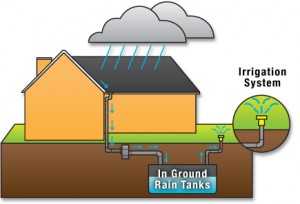Although close to three-fourth of our planet is made of water, not all of it is suitable for use. The water in the oceans and seas cannot be used as drinking water and little of it can be utilized for other purposes. As a result, there is a constant shortage of water that is either good for drinking or home and industrial use.
Rainwater harvesting started spreading to areas where there was plenty of rainfall. As a result, the modern day rainwater harvesting system was bought into place. The idea behind the process is simple to collect the rainwater when it falls on earth, store and utilize later.
To reduce the consumption of groundwater, many people around the world are using rainwater harvesting systems. This practice has been around for thousand of years and has been growing at a rapid pace. Utilizing the rainwater harvesting system provides certain advantages to the community, which includes:
1. Easy to Maintain: Harvesting rainwater allows us to better utilize an energy resource. Systems for the collection of rainwater are based on simple technology. The overall cost of their installation and operation is much lesser than that of water purifying or pumping systems. Maintenance requires little time and energy. The result is the collection of water that can be used in substantial ways even without purification.
2. Reducing Water Bills: Water collected in the rainwater harvesting system can be put to use for several non-drinking functions as well. For many families and small businesses, this leads to a large reduction in their utilities bill.
3. Suitable for Irrigation: Rainwater is free from many chemicals found in ground water, making it suitable for irrigation and watering gardens.
4. Reduces Demand on Ground Water: With increase in population, the demand for water is also continuously increasing. The end result is that many residential colonies and industries are extracting ground water to fulfill their daily demands. So, rainwater harvesting helps to reduce the demand on ground water.
5. Can be Used for Several Non-drinking Purposes: Rainwater, when collected can be used for several non-drinking functions including flushing toilets, washing clothes, watering the garden, washing cars etc. It is unnecessary to use pure drinking water if all we need to use it for some other purpose rather than drinking.

